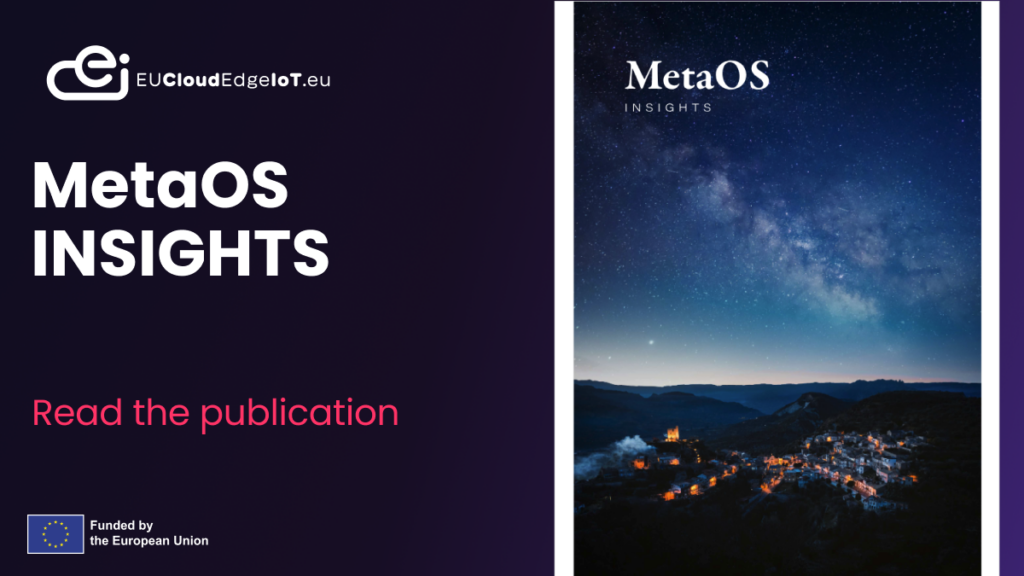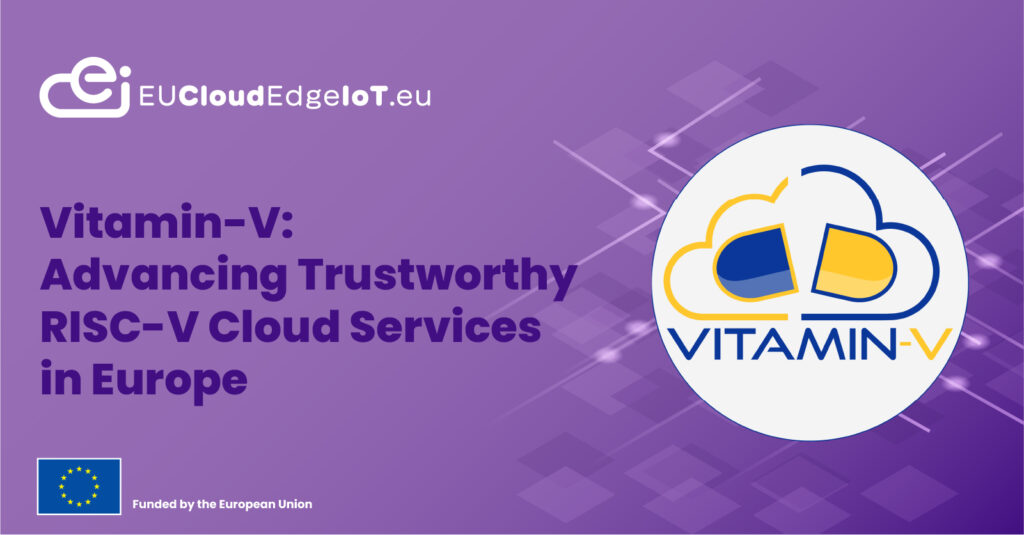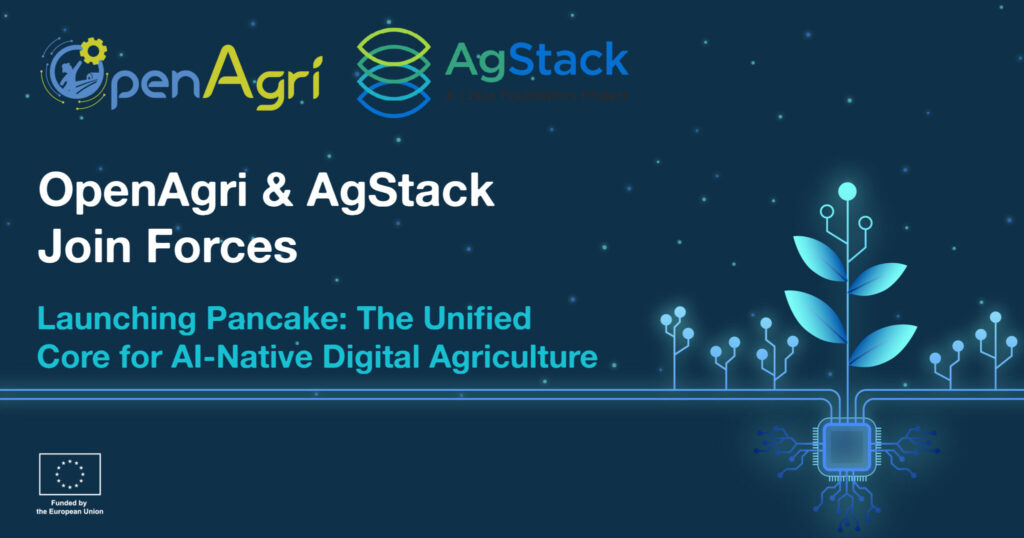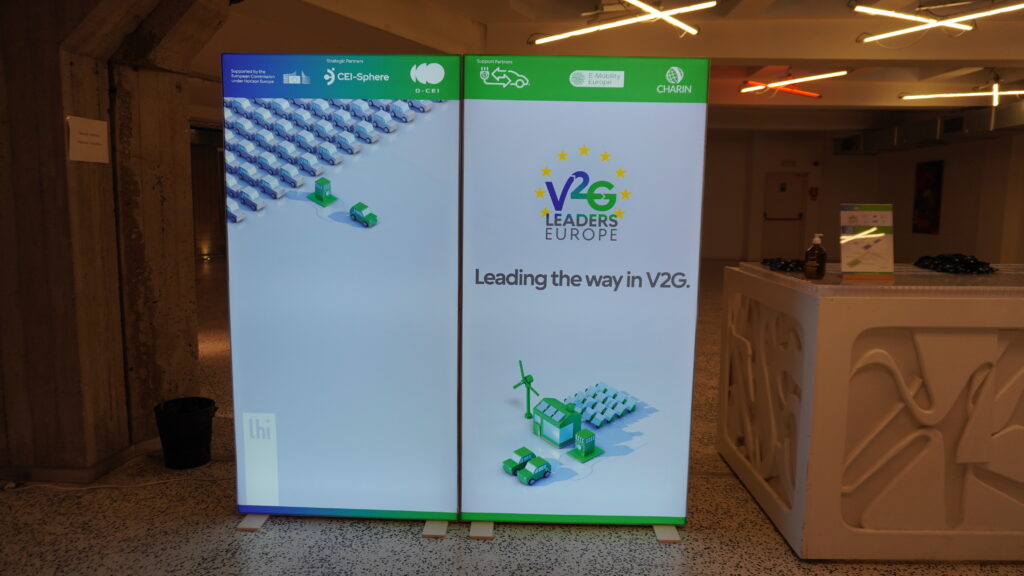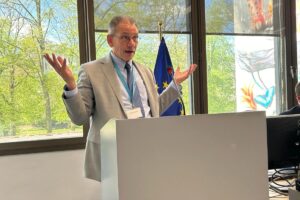 Brussels, April 10, 2024 – The Meta Operating Systems (MetaOS) workshop, hosted at the Centre de Conférences Albert Borschette and organised by Jan Komarek and Rolf Riemenschneider from the European Commission, brought together research project representatives, experts and stakeholders to discuss the results of the ongoing synergistic efforts in the EUCloudEdgeIoT initiative (EUCEI) and delineate future directions of the computing continuum as well as priority actions for the actors involved.
Brussels, April 10, 2024 – The Meta Operating Systems (MetaOS) workshop, hosted at the Centre de Conférences Albert Borschette and organised by Jan Komarek and Rolf Riemenschneider from the European Commission, brought together research project representatives, experts and stakeholders to discuss the results of the ongoing synergistic efforts in the EUCloudEdgeIoT initiative (EUCEI) and delineate future directions of the computing continuum as well as priority actions for the actors involved.
The event was structured around two main sessions. The morning session was focussed on presenting the work and discussing future improvements of the six task forces set-up under the EUCEI umbrella initiative with the participation of over 50 research projects and initiatives and the coordination of the CSAs OpenContinuum, UNLOCK-CEI and, more recently, NexusForum.
The afternoon session delved into transversal topics such as IoT platform integration, standardisation, and cybersecurity.
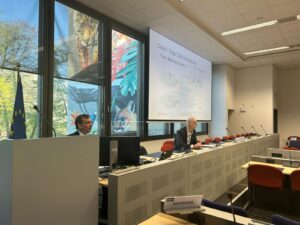
Highlights of the morning session
Throughout the morning, participants engaged in sessions covering the topics of the six Task Forces (TFs), namely strategic liaisons, open source engagement, architecture, ecosystem engagement, market and sectors, and communications and dissemination.
Each session was designed to facilitate discussions on specific aspects of the TF, driving forward the objectives of enhancing interoperability, collaboration, and innovation within the edge-to-cloud continuum.
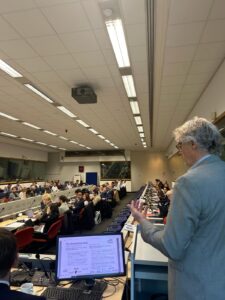
- TF1 – Strategic Liaisons: Focused on fostering connections with external communities and initiatives,this TF highlighted activities performed so far. These include the recent organisation of a brokerage event in February and the RIA challenge which were useful to identify best practices and unaddressed gaps. Discussions revolved around strategies to enrich project outcomes through closer engagement with external initiatives (like Joint Undertakings) in order to provide a more tangible impact of these liaisons in the future.
- TF2 – Open Source Engagement:This TF presented the development of a common open source stack architecture, bolstered by strategic events and surveys within the RIA community.The focus for the future will be on active involvement to hasten feedback collection and the prioritisation of consolidating over proliferating components to maximise the benefits of open source for the EU industry
- TF3 Architecture: The TF produced white papers on reference architecture and, during the discussion, identified future activities which include the creation of a taxonomy and a wiki page for the continuum.
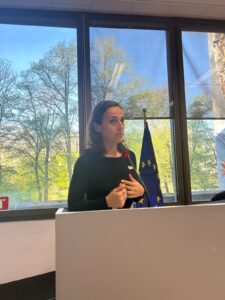
- TF4 Ecosystem Engagement: The main value of this TF, aimed at connecting the MetaOS community with external stakeholders, included enabling peer-to-peer learning and facilitating commercial partnerships, essential for the growth of SMEs within the ecosystem as well as improving the quality of applications to the MetaOS open calls.
- TF5 Market & Sectors: TF5 focused on delivering insights into the CEI market, structuring use-cases based on these insights, and identifying collaborative opportunities. It will work in the future for the continuous intensification of demand-supply interactions and a reality check of use-cases against market realities to provide go-to-market (GTM) support.This will be achieved by joining forces with TF4 in the next months
- TF6 Communications and Dissemination: ThisTF detailed efforts in establishing joint branding, coordinating joint large events and setting up and managing joint communication channels, including a dedicated website and social media presence. Looking forward, it plans to highlight success stories and oversee the handover of the joint website and use-case catalogue.
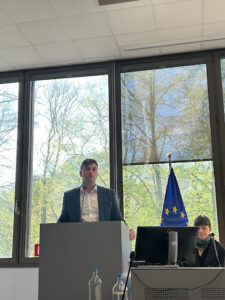
The morning sessions underscored the collaborative efforts of the MetaOS participating projects, including aerOS, FLUIDOS, Nephele, NEMO, NebulOuS, and ICOS, as well as projects from other clusters.
Highlights of the afternoon session
The afternoon sessions of the MetaOS workshop highlighted the complex interplay between technology development, market needs, and security considerations. It was opened by Max Lemke’s commentary, which highlighted the importance of measuring the Return On Investment (ROI) for taxpayers, the need to mitigate fragmentation through collaboration, and the imperative to address geopolitical and competitive challenges. His speech included a feedback on the activities so far performed, underscoring the necessity of showcasing success stories, improving contributions to standardisation, and adopting a platform approach to ensure the scalability and sustainability of research initiatives.
The discussions were then organised across transversal topics, namely:
Session 1: IoT Platform Integration, Interoperability, and Standardization
The session on IoT platform highlighted the necessity of an ecosystem that supports AI-embedded IoT nodes, underlining the importance of standardised interfaces and software platforms that manage the functionalities across the network and application layers. Presentations by aerOS and ECOS spotlighted the challenges of data integration and the imperative for decentralised platforms, marking a transition towards a more integrated and interoperable digital infrastructure.
Session 2: Key Use Cases and European Lighthouses
This segment highlighted the drivers of technology adoption, focusing on urgent industrial needs and the imperative for sustainable solutions in the context of climate change. With examples such as the SAGE open AI/Edge platform and the DISCOVER-US project, the discussion revolved around leveraging EU projects to exploit market trends and bolster EU-US collaborations. The session underscored also the significance of Edge AI, as articulated by EPoSS & Inside – with their Edge AI working Group, emphasising strategic autonomy and the identification of key technologies that will propel the European digital continuum forward.
Session 3 – Analysis and Lessons Learned from Open Calls
Insights from the experiences of open calls across MetaOS projects, including aerOS, Nephele, and ICOS, were shared, highlighting the competitive advantage and innovation spurred by involving SMEs and startups. The session detailed the strategies for crafting open calls that align with project goals while remaining inclusive enough to encourage innovative contributions. The emphasis was on clarity, transparency, and responsiveness to applicants’ feedback, underlining the need for structured engagement to drive participation and innovation.
Session 4: European Value Chains
The discussion on European value chains addressed the nascent edge computing ecosystem and the convergence of diverse industry players. The session explored the complexities of creating interoperable platforms across various sectors, emphasising the collaboration between device manufacturers, connectivity providers, and cloud service providers. The objective was to map out business models and key industrial actors, facilitating a comprehensive understanding of the value chains critical to the deployment of edge computing solutions.
Session 5: Cybersecurity
With an increasing emphasis on the security of IT systems, this session tackled the challenges of ensuring cybersecurity across the computing continuum. The focus was on the shift towards distributed security management in response to the decentralisation of data storage and processing. The discussion underscored the need for robust security mechanisms and thoughtful design considerations to protect data across the continuum, from IoT devices to central computing facilities.

